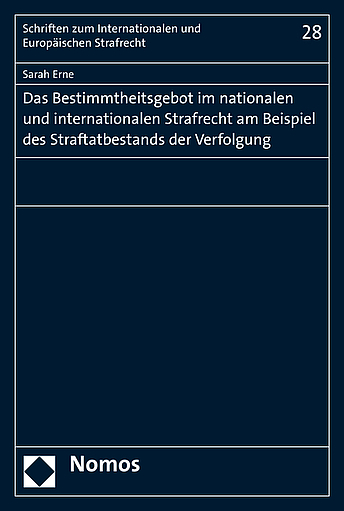englischCriminal laws should define precisely what conduct is forbidden. Sarah Erne examines the reasons for and the reach of the rule of lex certa (preciseness) of criminal laws in German and international criminal law. She shows that the requirement of preciseness of criminal prohibitions did not exist in international criminal law before the end of the Second World War. At present, the core of this principle is firmly rooted in human rights law and thus cannot be abrogated by national legislation. It is difficult to define the exact reach of the requirement of preciseness; paradoxically, this rule itself is anything but precise. Sarah Erne criticizes the widespread assumption that an imprecise criminal statute can be salvaged by a consistent court practice. She examines the crime against humanity of persecution, a typically vague criminal prohibition under international law, and comes to the conclusion that the definition of that crime is fatally imprecise.
Strafnormen sollen genau festlegen, welches Verhalten verboten ist. Sarah Erne untersucht die Begründung und die Reichweite des Gebots der Bestimmtheit von Strafnormen im deutschen Recht und im Völkerstrafrecht. Es wird herausgearbeitet, dass man von der Geltung des Bestimmtheitsgrundsatzes im Völkerstrafrecht erst nach 1945 sprechen kann. Inzwischen ist das Bestimmtheitsgebot in den Menschenrechten verankert und daher in seinem Kerngehalt für nationale Rechtsordnungen nicht mehr disponibel. Die Reichweite des Bestimmtheitsgebots ist nicht leicht zu erfassen; der Grundsatz ist letztlich selbst inhaltlich unbestimmt.
Beispielhaft für verschiedene andere völkerrechtlich geprägte Straftatbestände untersucht Sarah Erne den Tatbestand des Menschlichkeitsverbrechens der Verfolgung im deutschen Recht sowie im Völkerstrafrecht; sie kommt zu dem Ergebnis, dass dieser Tatbestand dem Bestimmtheitsgebot nicht gerecht wird.


